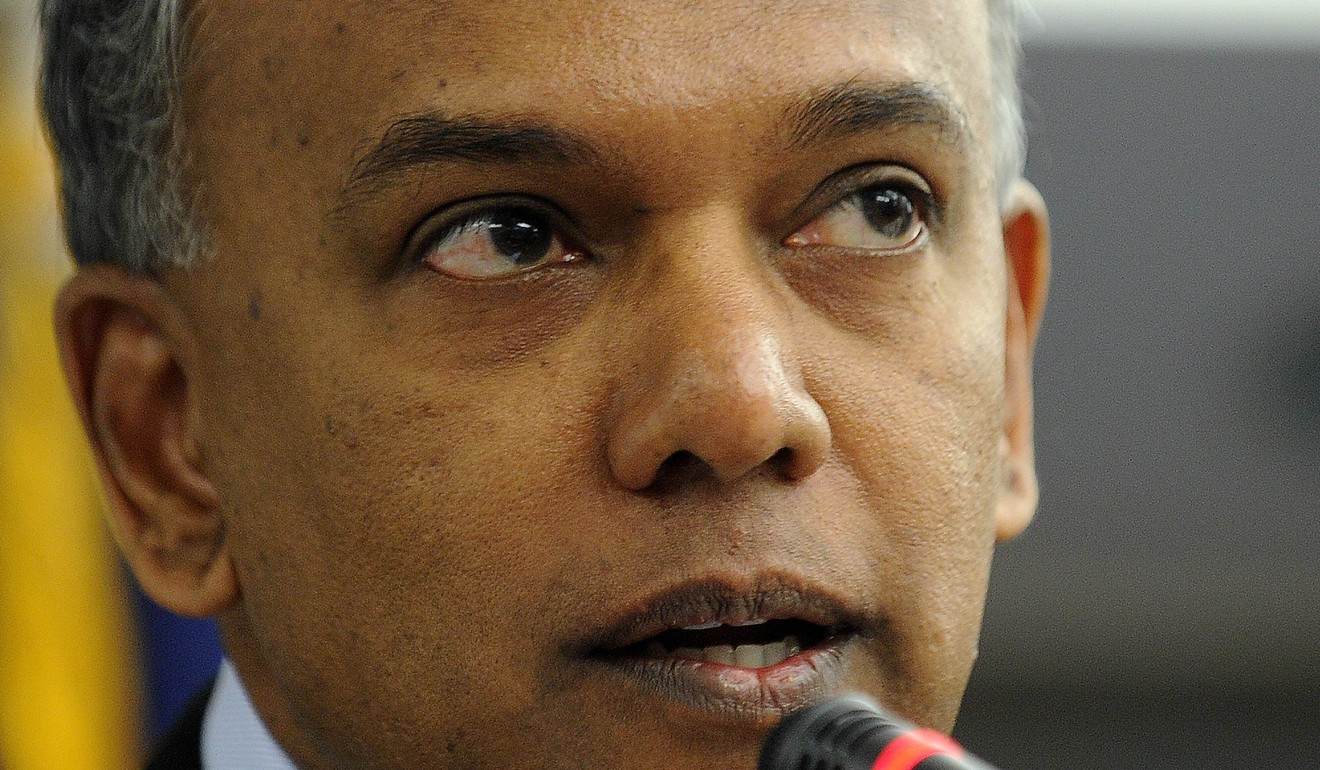
‘We will define what’s unlawful’: Singapore prepares legislation to confront fake news by 2018
The government has sent teams to other countries such as Germany and Britain to study how they deal with fake news
Singapore plans to introduce legislation to tackle fake news next year, Law and Home Affairs Minister K. Shanmugam said on Monday.
“We will in the second half of this year consult with the stakeholders, the media, the legal profession, of course the internet companies, we have to work with them, and see what the contours or shape of the legislation ought to be,” Shanmugam told a forum on how to deal with fake news.
“Hopefully, we will have it in place next year or so,” he said in his opening address to the “Keep it real: truth and trust in the media” forum organised by the World Association of Newspapers and News Publishers and the local Straits Times newspaper.
The minister expressed concern about misinformation that exploits racial and religious divides in Singapore’s multi-racial society.
Elaborating on the proposed legislation to reporters later, Shanmugam said the plan is to focus on “working with technology platforms to delegitimise fake news, help people identify what is fake news”.
[The plan is to focus on] working with technology platforms to delegitimise fake news, help people identify what is fake news
In addition, he said if it is done “with malaise, or profit, or deliberately,” the people who spread fake news also must be dealt with.
“But that does not apply to news which is erroneous, inadvertently put out. We are talking about fake news where people intentionally put it out and it has an impact on society,” he explained.
Singapore has had its share of fake news incidents.
In 2015, a Singapore student posted a fake announcement on the supposed death of former Prime Minister Lee Kuan Yew a few days before he died on March 23, resulting in international news outlets such as CNN and Chinese broadcaster CCTV into prematurely reporting his death.
In another incident in September 2015, a fake rumour was spread via the messaging service WhatsApp that the government was conducting cloud seeding not so much to help quell forest fires in neighbouring Indonesia but to help alleviate the smog caused by these fires ahead of the Singapore Grand Prix and urging the public to be wary of “chemically induced rain showers”.
He said a recent survey commissioned by the government to get Singaporeans’ views showed that 91 per cent of respondents supported stronger laws to ensure the removal or correction of fake news.
The government has sent teams to other countries such as Germany and Britain to study how they deal with fake news, he said.

Stressing that “tech companies ... bear a significant responsibility,” he observed that last year, tech companies gave voluntary commitments to the European Union to remove reported hate speech within 24 hours.
“But I think the general prevailing view across a range of countries is that these voluntary commitments are not enough,” the minister said.
“We have studied what is happening elsewhere. They are all considering laws to compel social networks to take down various types of unlawful content. So, you will have to define what’s unlawful and you will have to define the responsibility to take it down,” he said.
He gave as an example of the dangers of fake news the case of somebody taking a video of Pakistanis celebrating a cricket victory and then reposting it after the 2015 Paris terror attacks, changing the title and making it seem as if the video shows Muslims celebrating the terror attacks.
“500,000 views within two hours, serious consequences, creates Islamophobia, makes people angry with Muslims,” he said.

